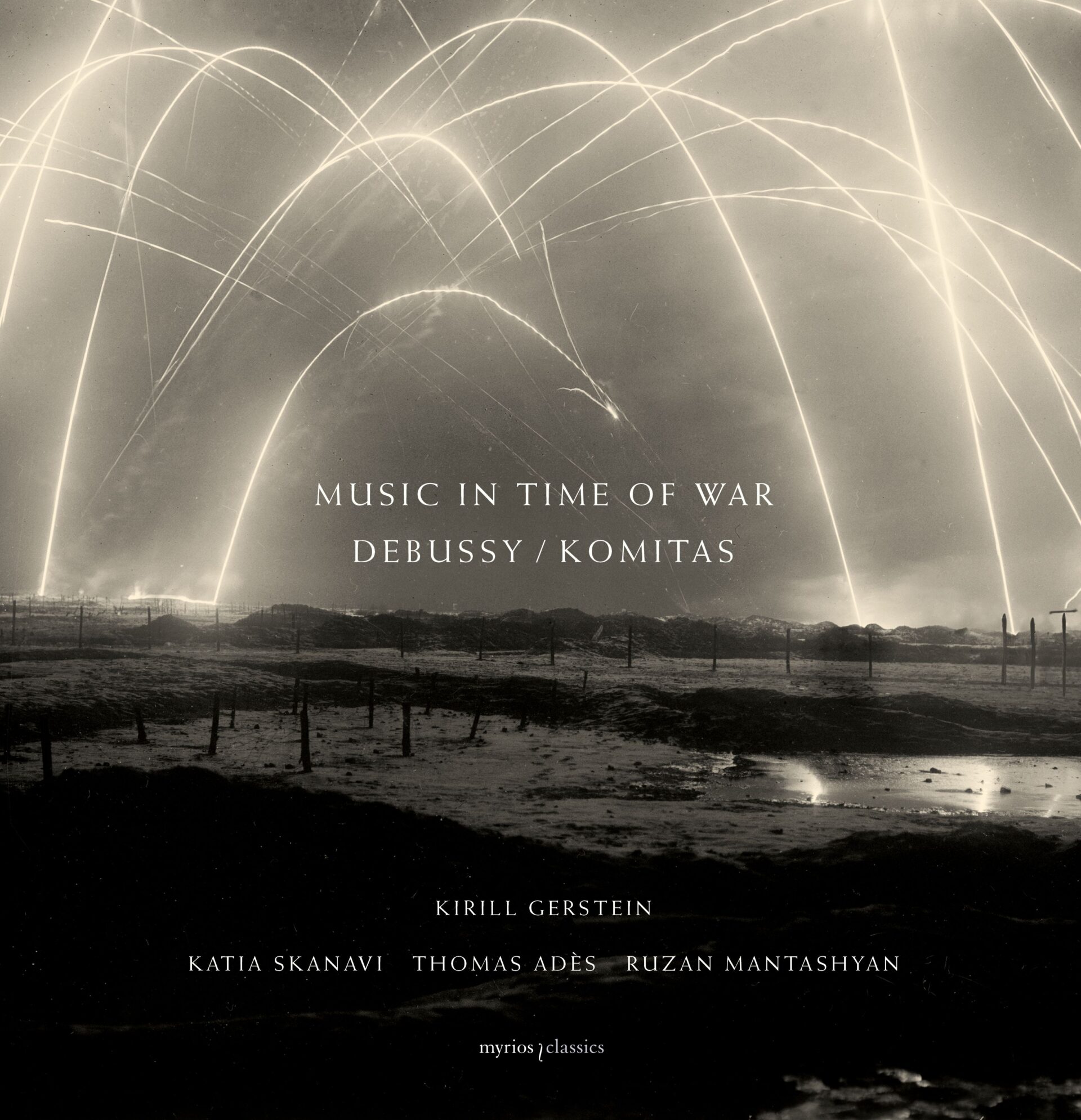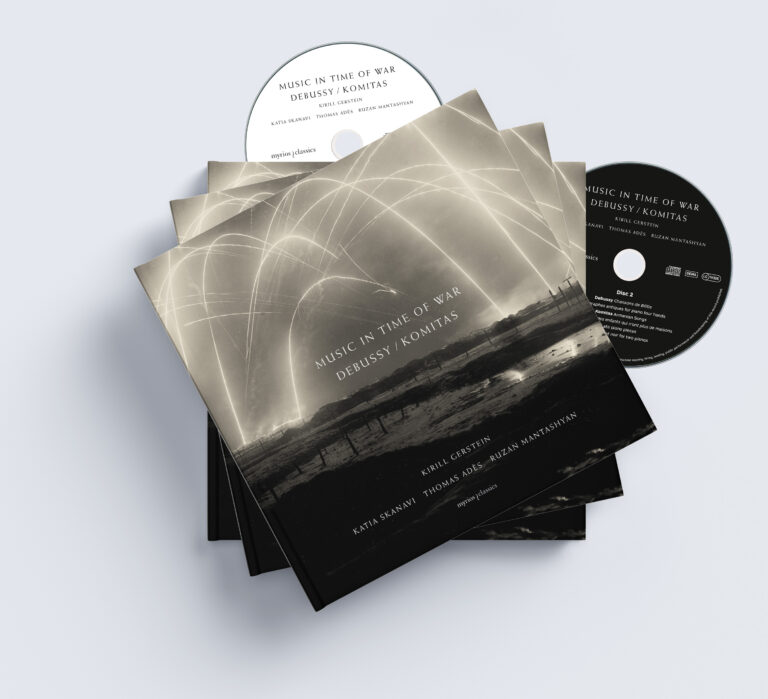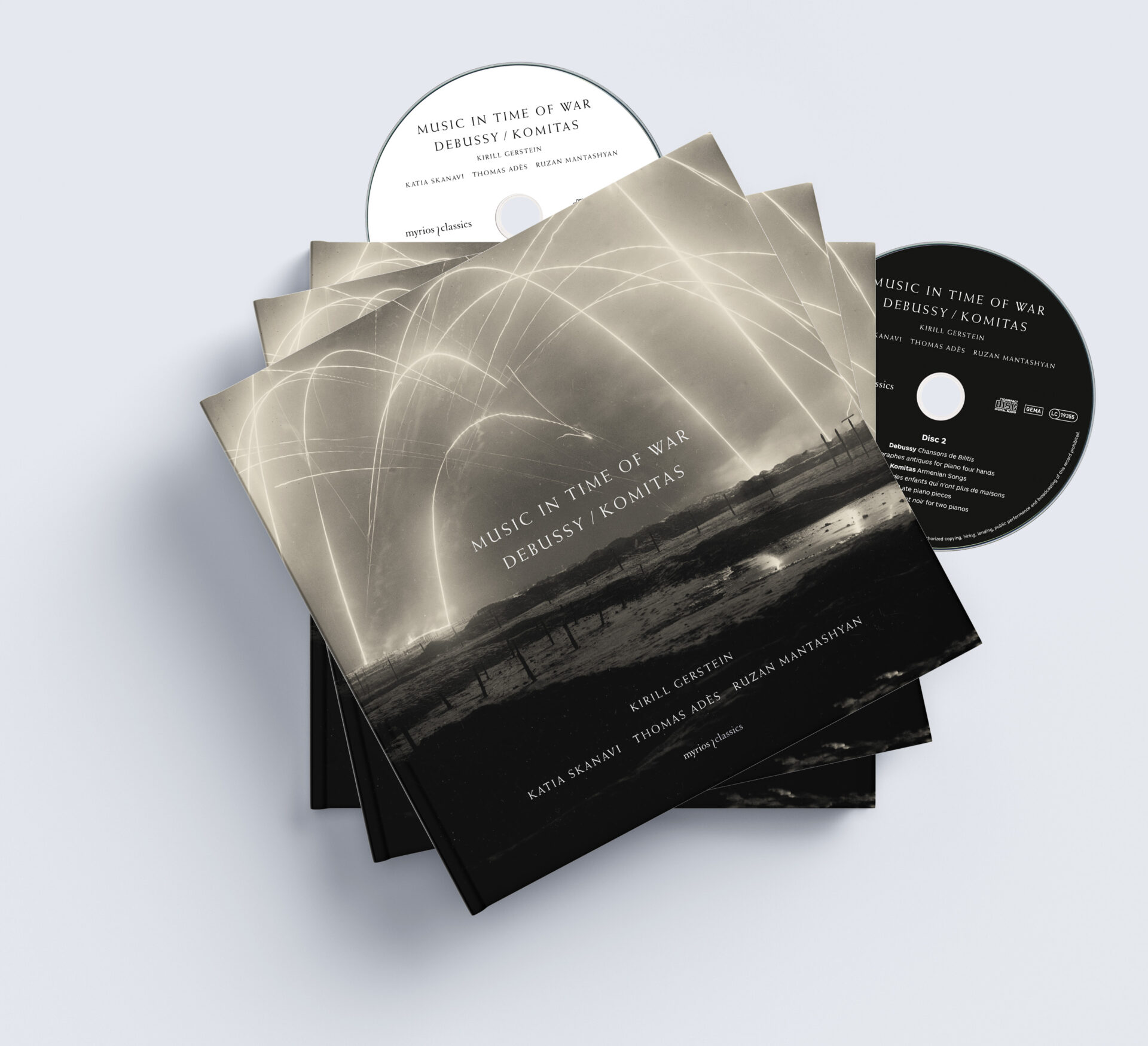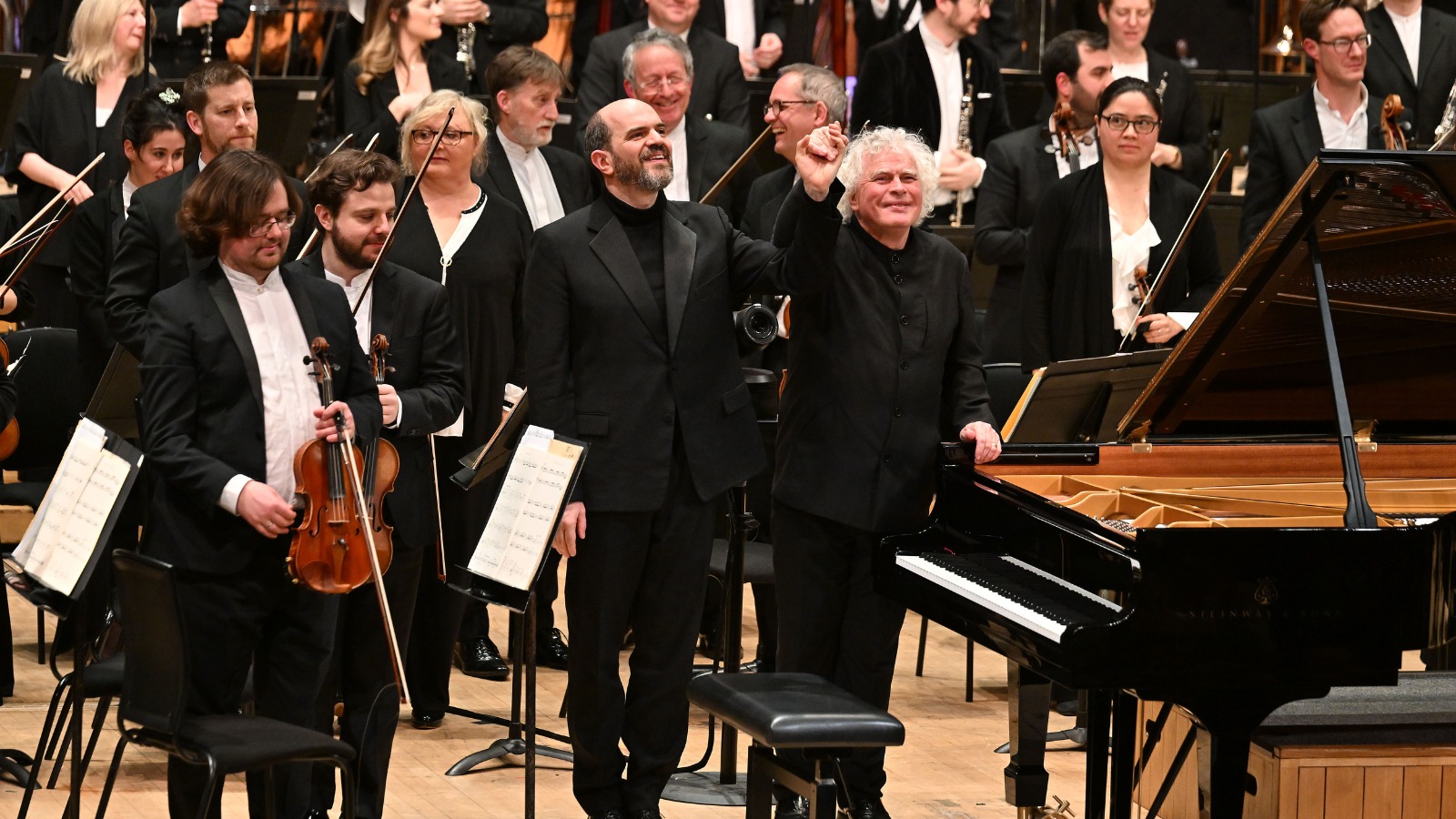Discography
Discography

Inspired by the music of Komitas, a pioneer of ethnomusicology and revered as the founder of the Armenian national school of music, Kirill Gerstein’s most recent initiative epitomizes his approach to music-making.
Scheduled for release in the weeks between the anniversary of Debussy’s death and Armenian Genocide Memorial Day, Music in Time of War is a double album which places the music of Komitas alongside that of Claude Debussy, a seminal composer in the late 19th and early 20th centuries, who held a deep admiration of Komitas’s music. Both composers were profoundly affected by the implosion of their worlds – Komitas by the Armenian Genocide, Debussy by the First World War – and their musics reflect a close emotional alignment. For many Komitas is terra incognita, yet for those already familiar with his work, his memory burns more brightly than ever.
The project is presented as an illustrated book with a series of in-depth essays commissioned by Kirill.
Music in the Time of War highlights Kirill’s fascination with music’s power to reflect a narrative and to connect to the world past and present. Born in 1869, Komitas spent his formative years transcribing and preserving rural Armenian songs and published his earliest edition – the original collection of Kurdish folk songs – in 1903. In Paris, where Komitas travelled in 1906, he enjoyed the praise of Debussy who, on hearing the song Antuni (Homeless) is quoted as saying “If Komitas had written only Antuni, that alone would have been enough for him to be considered a great artist.”
Though Komitas physically survived the Armenian genocide of 1915, he was subsequently brought to Paris, where he spent the remaining 20 years of his life in a psychiatric clinic.
For the recording, Kirill is joined by the Armenian soprano, Ruzan Mantashyan, and, pianists Thomas Adès and Katia Skanavi to perform a selection of works for solo piano, voice and piano, piano four hands and two pianos. Kirill pairs Debussy’s 12 Études from 1915 and Komitas’s Armenian Dances for piano, composed the following year and, includes a selection of Debussy’s late piano pieces composed to raise funds for the war. Komitas’s Armenian Songs and, Debussy’s Chansons de Bilitis and his final song, Noël des enfants qui n’ont plus de maison, are sung by Ruzan Mantashyan; En Blanc et Noir pour deux pianos, Debussy’s most overtly anti-war piece is performed by Thomas Adès and Kirill; and, 6 Épigraphes antiques, Debussy’s only completed piece from 1914, is played by Katia Skanavi and Kirill.
Accompanying the recording are four in-depth essays that explore the impact of war and Genocide on society in general and artists in particular. Commissioned from Annette Becker, Professor of Contemporary History at Paris Ouest Nanterre La Défense, who has written extensively on the two world wars and the extreme violence they nurture; the Armenian composer, Artur Avanesov; Khatchig Mouradian, author, academic and lecturer at Columbia University, and the Armenian and Georgian Area Specialist at the Library of Congress; and composer, virtuoso oboist, and conductor Heinz Holliger, the essays give context to Debussy’s and Komitas’s music and their response to creating in times of catastrophe.
Recorded 2021 at Konzerthaus Wien, Siemens-Villa Berlin and the American Academy of Arts and Lettres New York.

DISC 1
CLAUDE DEBUSSY (1862–1918)
12 Études (1915) á la mémoire de Frédéric Chopin
PREMIER LIVRE
1. Pour les cinq doigts · d’après Monsieur Czerny
2. Pour les tierces
3. Pour les quartes
4. Pour les sixtes
5. Pour les octaves
6. Pour les huit doigts
DEUXIÈME LIVRE
7. Pour les degrés chromatiques
8. Pour les agréments
9. Pour les notes répétées
10. Pour les sonorités opposées
11. Pour les arpèges composés
12. Pour les accords
KOMITAS VARDAPET (1869–1935) Armenian Dances (1916)
13. Manushaki of Vagharshapat
14. Yerangi of Yerevan
15. Unabi of Shushi
16. Marali of Shushi
17. Shushiki of Vagharshapat
18. Het u Aradj of Karin
19. Shoror of Karin
Kirill Gerstein, piano
DISC 2
CLAUDE DEBUSSY Chansons de Bilitis (1897-98)
Text: Pierre Louÿs
20. La Flûte de Pan
21. La Chevelure
22. Le Tombeau des naïades
Ruzan Mantashyan, soprano
Kirill Gerstein, piano
6 Épigraphes antiques
pour piano á quatre mains (1914–15)
23. Pour invoquer Pan, dieu du vent d’été
24. Pour un tombeau sans nom
25. Pour que la nuit soit propice
26. Pour la danseuse aux crotales
27. Pour l’Égyptienne
28. Pour remercier la pluie au matin
Katia Skanavi and Kirill Gerstein, piano
KOMITAS VARDAPET
Armenian Songs
Text: traditional
29. Tsirani tsar
30. Chinar es
31. Garoun a
32. Le le Yaman
33. Qeler Tsoler
34. Antouni
Ruzan Mantashyan, soprano
Kirill Gerstein, piano
CLAUDE DEBUSSY
35. Noël des enfants qui n’ont plus de maisons (1915)
Text: Claude Debussy
Ruzan Mantashyan, soprano
Kirill Gerstein, piano
Late Piano Pieces
36. Page d’album pour piano pour l’œuvre du « Vêtement du blessé » (1915)
37. Berceuse héroïque (1914) pour rendre hommage á S.M. le roi
Albert Ier de Belgique et à ses soldats
38. Étude retrouvée (1915)
39. Élégie (1915) from Pages inédites sur la Femme et la Guerre
40. Les Soirs illuminés par l’ardeur du charbon (1917)
Kirill Gerstein, piano
En blanc et noir pour deux pianos (1915)
41. À mon ami A. Koussevitzky (Avec emportement)
42. Au lieutenant Jacques Charlot tué à l’ennemi en 1915, le 3 mars (Lent. Sombre)
43. À mon ami Igor Stravinsky (Scherzando)
Thomas Adès and Kirill Gerstein, piano
















